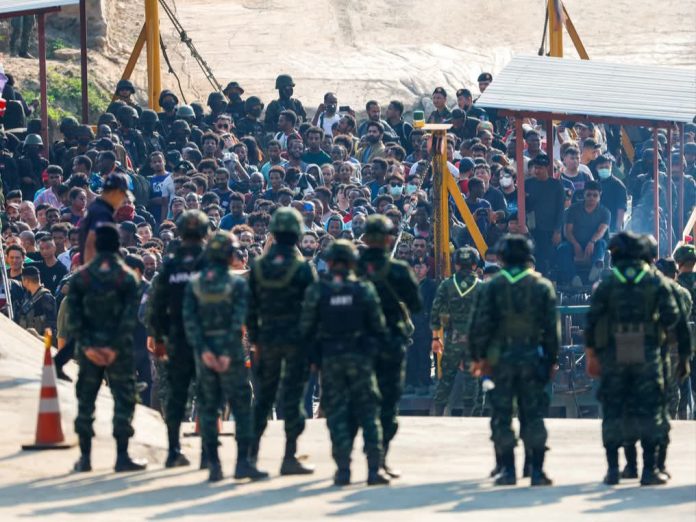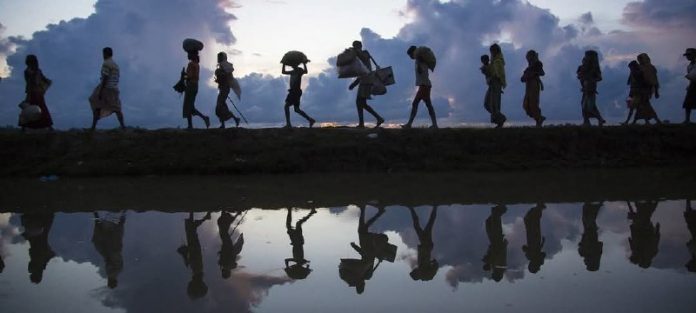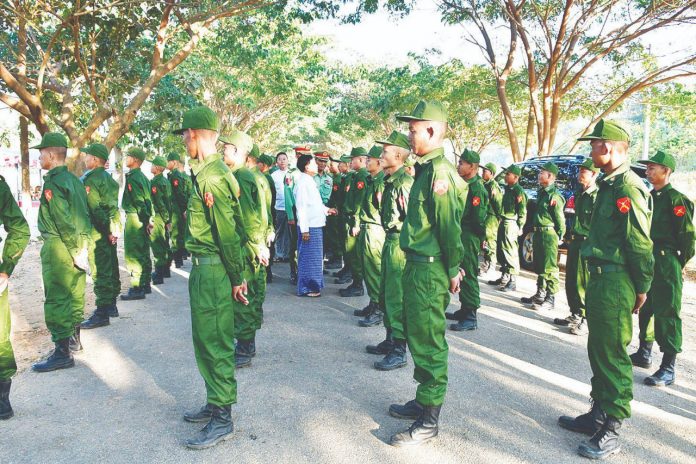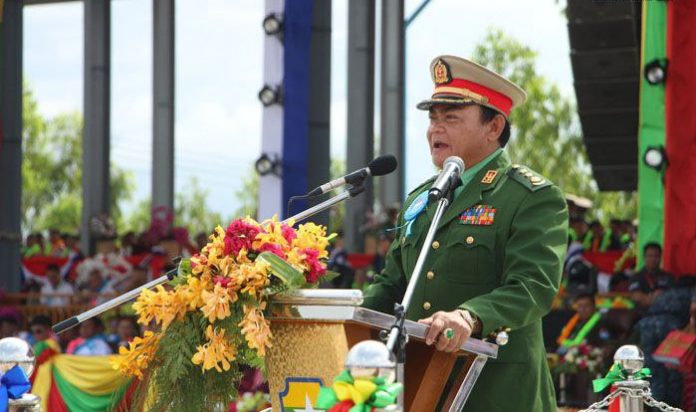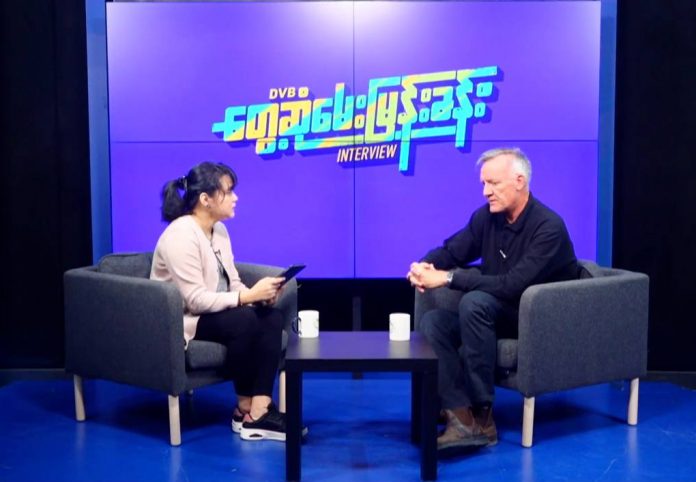The Democratic Karen Benevolent Army (DKBA) handed over 261 foreigners from 19 countries, who were trafficked into Myanmar to work at cyber scam centers in Karen State, to the Thai army on Wednesday.
The DKBA dismissed allegations of human trafficking into cyber scam centers in Payathonzu town, also known as Three Pagodas Pass, in Kyain Seikgyi Township of Karen State on Monday. Payathonzu is located 143 miles (230 km) south of the state capital Hpa-An and next to Nong Lu in Kanchanaburi Province of Thailand.
It issued a notice on Sunday instructing Chinese nationals “illegally” residing and working in DKBA-controlled territory to leave by Feb. 28.
“I have not seen any Kokang Chinese nationals involved in scam activities in Payathonzu. Some arrived after the battles in Laukkai and Lashio. These people are known for their involvement in gambling activities,” Saw Ae Wang, a DKBA tactical commander, told DVB.
Over half the 261 foreigners released into Thailand by the DKBA on Feb. 12 are reportedly from countries in Africa or Asia. The Thai authorities are currently assessing whether they were, in fact, human trafficking victims.
“Thai people always come to China and feel at home, so I hope that Chinese people can come to Thailand and feel at home as well,” Thailand’s Prime Minister Paetongtarn Shinawatra told China Daily during a visit to Beijing last Thursday.
The Tourism Authority of Thailand (TAT) stated that over 6.3 million Chinese tourists had visited Thailand this year up to Dec. 8, making China the largest source of visitors.
Thai Prime Minister Paetongtarn Shinawatra pledged to dismantle scam centers along the Thailand-Myanmar border during her meeting with Chinese President Xi Jinping last week.
“The problem will not end unless its root cause is tackled,” said former Thai Prime Minister Thaksin Shinawatra, Paetongtarn Shinawatra’s father and the de facto leader of her ruling Pheu Thai Party. “If the scammers are booted out of the country, we will resume the supply of electricity and internet signals,” he added.
The DKBA is not the only ethnic armed group accused of human trafficking into cyber scam centers along the Thai-Myanmar border. The Karen State Border Guard Force (BGF) is also accused of human trafficking and forced labour at cyber scam centers located in BGF-controlled areas, which includes the casino complex of Shwe Kokko.
Prosecutors from Thailand’s Department of Special Investigation (DSI) Human Trafficking Crime Bureau have requested arrest warrants for the BGF leaders, including Saw Chit Thu, Saw Mote Thone and Saw Tin Win.
“The people who came here didn’t just fall from the sky; they were mainly individuals who traveled through Thailand,” Saw Chit Thu told DVB in an interview this week.
“I’ve been at the Thailand-Myanmar border for over 30 years. I’ve helped Thailand many times before. If they want to arrest me, I want to know under which laws they intend to do so,” he asked.
Thai media reported that the DSI received evidence from an Indian national who was rescued after being trafficked and forced to work at a cyber scam center in Myawaddy Township of Karen State.
Prosecutors have advised the DSI to gather additional evidence. Mywaddy is located 80 miles (128 km) east of Hpa-An and is next to Mae Sot in Tak Province of Thailand.
The Royal Thai Police (RTP) announced on Wednesday the formation of a committee to investigate five senior Thai police officers who were transferred from Tak Province, which is located along the Thai-Myanmar border, to Bangkok for alleged links to human trafficking into cyber scam centers in Myawaddy from Mae Sot.
Thai Deputy Prime Minister and Defence Minister Phumtham Wechayachai has rejected accusations from the regime in Naypyidaw that “other countries” – a veiled reference to Thailand – is to blame for the proliferation of cyber scam centres along the 1,501 mile (2,416 km) long border.
He stated on Wednesday that BGF leader Saw Chit Thu will be arrested if he enters Thailand. The Thai government does not seem to be pursuing arrest warrants for DKBA leaders.


